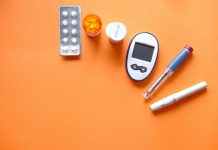
Diabetes, a disease we often hear about, can lead to many health problems. One that might surprise you is that it can hurt your eyes.
This issue is more widespread than you might think. Nearly 8 million Americans have eye problems because of diabetes. Even worse, by 2040, the number is expected to double.
Understanding the Enemy: How Diabetes Hurts Our Eyes
There are two main ways that diabetes affects our eyes. These are called “proliferative diabetic retinopathy” and “diabetic macular edema”.
In simple terms, “proliferative diabetic retinopathy” happens when too many blood vessels grow in the light-sensing part of the eye, known as the retina.
This growth can cause bleeding or the retina to become detached, leading to serious vision loss.
On the other hand, “diabetic macular edema” happens when blood vessels in the eye leak fluid. This fluid causes the center part of the retina to swell up, which damages the cells that help us see clearly.
Current Solutions and Their Shortcomings
Right now, doctors often treat these problems by injecting a medicine called “anti-VEGF” therapies into the eyes. These therapies can stop the growth and leakage of blood vessels in the retina.
However, they don’t work for everyone and might cause side effects like increased eye pressure or damage to the eye tissues.
A Possible Game-changer: New Experimental Drug
A team of researchers at the Wilmer Eye Institute, Johns Hopkins Medicine, might have found a new way to treat these eye problems.
They have been studying a new drug, “32-134D”. This drug was initially used to slow down the growth of liver tumors in mice.
The new drug works by reducing a protein called HIF, or “hypoxia-inducible factor”, in the body. Too much HIF can cause blood vessels in the eyes to grow and leak.
By lowering HIF levels, the drug can slow down the growth and leakage of these blood vessels.
The researchers tested this new drug in two stages. First, they used it on human eye cells in the lab. The drug worked well to slow down blood vessel growth and leakage.
Next, they tested it in mice by giving them eye injections of the drug.
They found that the drug lowered HIF levels, stopped new blood vessels from forming, and stopped existing vessels from leaking. Importantly, one injection of the drug lasted about 12 days in the eyes of the mice.
These results are very encouraging. Dr. Akrit Sodhi, one of the researchers, believes that the drug is both effective and safe. However, more tests in animals are needed before this drug can be tested in humans.
If future tests are successful, this drug could provide a new and better way to treat vision loss in people with diabetes.
Additional Information
For those interested in eye health, it’s good to know that both diabetes and high blood pressure can predict blinding eye disease. In addition, there are seven habits that can help prevent vision loss in older people.
In other health news, recent studies show that Vitamin E could help reduce blood sugar and insulin resistance in diabetes. Plus, there’s a strong link between blinding eye disease, heart disease, and stroke.
The study on the new drug was published in the Journal of Clinical Investigation.
If you care about diabetes, please read studies about Vitamin D and type 2 diabetes, and what you need to know about avocado and type 2 diabetes.
For more information about diabetes, please see recent studies about How to eat to prevent type 2 diabetes, and 5 vitamins that may prevent complication in diabetes.
Follow us on Twitter for more articles about this topic.
Copyright © 2023 Knowridge Science Report. All rights reserved.



